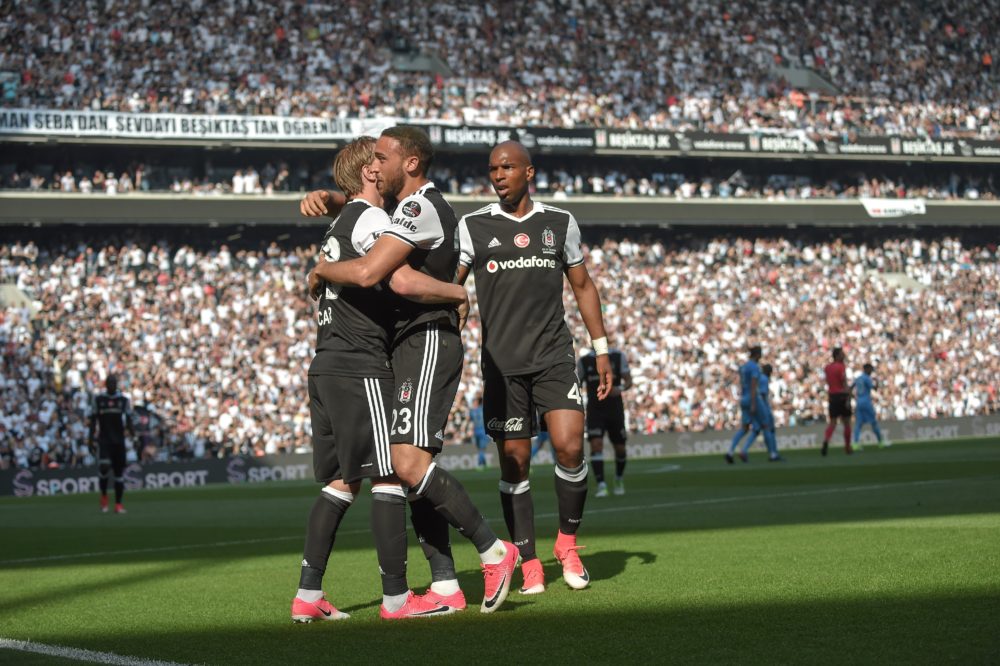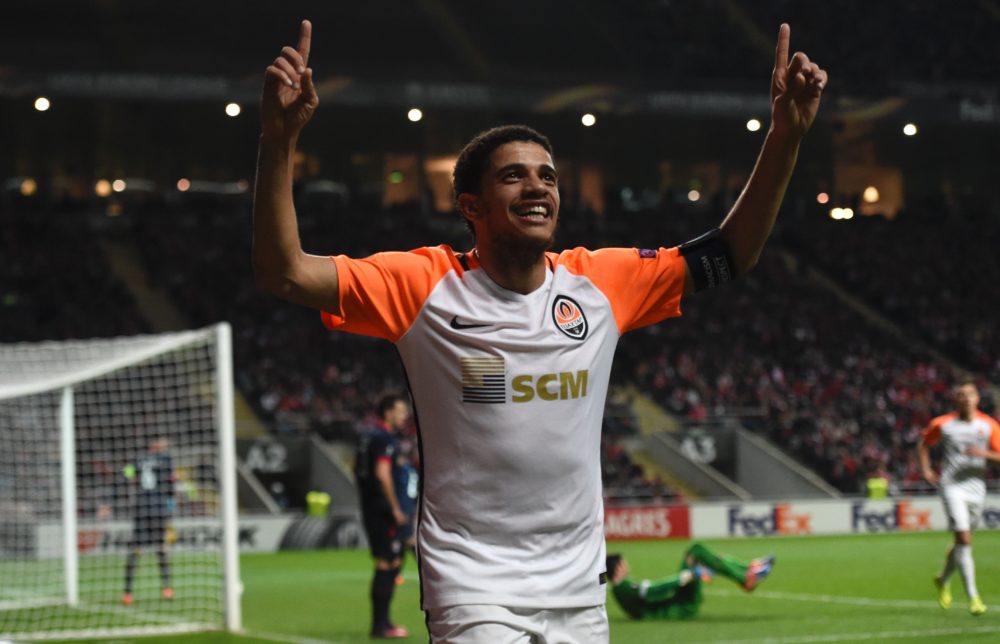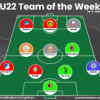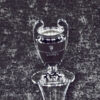Oliver McManus has a look at some of the teams in the Champions League that could spring a surprise or two.
It’s UEFA Champions League time which means one thing. Well, actually, it means quite a lot of things but I’m talking about our Hipster Guide to the teams you need to keep an eye on ahead of the tournament. Now as you could probably tell there’s no mainstream teams allowed in this article so say goodbye to Juventus, Barcelona or Bayern Munich and say hello to Celtic, Napoli, Olympiacos, Tottenham Hotspur and the almighty CSKA Moscow.
Glasgow Celtic / Scotland
We kick things off with the perennial “ones to watch”, Celtic Football Club, who enter the group stages on the back of a stellar two-legged play-off affair with FC Astana (they’ll be in the Europa League Hipster Guide) in which they took a 5-0 advantage to Kazakhstan but were taken to the edge with Astana running out 4-3 winners on the night, Celtic advancing 8-4 on aggregate.
What on earth that will do for the confidence within the team I have no idea but European football consistently proves to be their toughest challenge of the season with the Scottish Premiership essentially a walkover; the last 3 seasons they have swept to the league title by margins of 30, 15 and 17 points respectively.

Photo by Ian MacNicol / Getty Images
It’s always going to be hard to measure Celtic up then based on their domestic form but last season was hands down impressive, there’s no arguing about that. In a 38 game league, they won 34 games and drew 4 to go unbeaten with 106 goals scored and a measly 25 conceded. Oh and if that’s not enough they also won the Scottish Cup and the Scottish League Cup.
In Europe, however, disappointment loomed and perhaps the omens were there to see from their very first game – the UEFA Champions League Second Qualifying Round against Gibraltarian club, Lincoln Red Imps. A downbeat and dour performance saw the 1,632 strong crowd largely jubilant as a 48th minute goal from Lee Casciaro ensured the Imps would go down in history.
They did make the group stages where they were drawn in the Group of Death against Barcelona, Manchester City and Borussia Monchengladbach. Now I hear you when you say “how can anything be disappointing in that group?”, well 3rd place was always going to be a realistic expectation but to be hammered 7-0 by Barcelona was a disgrace and the fashion in which they lost 2-0 to Monchengladbach before drawing 1-1 in the reverse fixture showed a lack of heart and passion. 4th place, 3 points, -11 goal difference, disappointment.
This season will be different, or so they say, because deadweight has been removed (Efe Ambrose, I am looking directly at you) and talent upon talent has been brought in – Patrick Roberts is expected to re-join the club on loan having got 17 goals from 60 games over the last 18 months for the Hoops. There’s also the midfield trio of Oliver Ntcham, Jonny Hayes and Kundai Benyu who provide a mixture of experience and youth.
The core of the team has been retained too with Craig Gordon providing defensive stability at the very back, 38 clean sheets from 55 games last season is a sure-fire sign that he still remains as solid as ever despite his notorious injury problems. Moving further up the pitch you’ve got a rejuvenated Scott Sinclair hitting his stride and finding form that he’s not really known since his 2010-11 season with Swansea City in the Championship. Upfront the second most promising Dembele in all of world football is creating havoc with Moussa (not that one) leaving defence after defence in his wake, 51 goals from 115 career appearances at just 21 shows why Celtic have to be feared this season.
3 UEFA Champions League last-16 appearances in the last 10 years is tantamount to the fact that Celtic are by no means a forgotten force in European football but it is, indeed, a far cry from the heady heights of Seville 2003 and the UEFA Cup Final. Of course more recently they’ll be remembered for an astonishing victory over Barcelona, winning by 2 goals to 1 on home turf in 2012 to reinforce that when Hampden Park turns it on, they really turn it on.
What’s going to be key to progression for Celtic then? Very simply, stick to what they know best and execute their game plan to perfection. They’re an attacking team so they need to go out and harry the opposition into mistakes – press high, play fast, keep the ball moving and get it to the creative maestros for them to do their thing.
They’re going to need to pull it out of the bag in a group with Bayern Munich, Paris Saint-Germain and Anderlecht as their opponents but Brendan Rodgers has made no bones about the fact that he wants to push Celtic to be the best and, as well all know, to be the best you’ve got to play the best.
Olympiacos / Greece
From one domestically dominant team in Celtic to another with Thrylos, Kokkinoi, Dafnostefanomenos, Olympiacos F.C. If you’ve got a good memory you may recall that they featured in last year’s Europa League Hipster Guide but have made the leap up to the UEFA Champions League following their 7th consecutive Greek Super League victory and their 19th in the last 21 years.
I said last year that the club “kept on getting better” but frankly that statement is more than a little redundant now because last season was absolutely atrocious by their standards winning the league by a meagre 6 points (okay not exactly meagre) but what was most disappointing was the way they went about the whole season.

Photo by Srdjan Stevanovic / Getty Images
Attendances broke the steady stride of increases with a 13.8% drop from the 2015/16 season and every time the club hit a bump in the road they just decided to dispense of the manager at the time. Last season saw 4 different managers in Victor Sanchez, Paulo Bento, Vasilis Vouzas and Takis Lemonis, now they have Besnik Hasi in only his 3rd ever role following reasonably impressive stints with Anderlecht and Legia Warsaw.
I’m doing a lot of naysaying for a club that’s making my “Hipster Guide” which may be a tad surprising but then I remembered “hey this is called a Hipster Guide, I never said they had to be good”. Also because I think they might prove to be a tricky challenge in Group D where they face Juventus, Barcelona and Sporting Lisbon.
Astute signings have been made to improve the squad with a particular emphasis being on the front third with Emmanuel Emenike replacing his Nigerian teammate Brown Ideye in being the main striker. Patjim Kasami and Vadis Odjidja-Ofoe providing the club with an array of options in midfield, Kasami being more of a flair player and Odjidja-Ofoe sitting deeper back and pulling the strings from that position.
Looking to their manager we see, as previously mentioned, Besnik Hasi who is an Albanian-Kosovan manager with a decorated career as a player that yielded him 4 Belgian Pro League titles as well as a further two cup competitions.
Between 2008 and 2014 he joined former club, Anderlecht as assistant manager where he learnt his trade patiently before the fulltime vacancy became available following the sacking of John van den Brom. Hasi guided the team to the 2013-14 Belgian Pro League and 2014 Super Cup but was fired on the 26th May 2016 as a result of his failure to regain that league title.
After an indifferent spell with Legia Warsaw he was approached by Olympiacos before the beginning of this season and has very quickly managed to adapt the squad to his preferred 4-2-3-1 formation which combines defensive stability and attacking skill.
Truth be told despite the raft of attacking options brought in during the transfer market, Olympiacos’ strength remains at the back with a backline spearheaded by 23-year-old goalkeeper Stefanos Kapino, protected by a bank of 4 that usually consists of Hrovje Milic, signed from Fiorentina, Jagos Vukovic, Panagiotis Restos and, thrice UEFA Europa League winner, Diogo Figueiras.
Looking back on their history in European competitions over recent times then last season was, arguably, their second best since the turn of the century despite dropping down a level into the UEFA Europa League. Aside from 2013-14 when they put 3 goals past Anderlecht on two occasions and took 4 points off Benfica before being knocked out by Manchester United in the UCL Round of 16, they’ve had very little notable success lately.
Last season, like I said, saw a shift in that pattern as they squeezed through two rounds of qualifying to reach the UEFA Europa League group stages before being drawn in an unconventionally tricky group with APOEL, Young Boys and Astana. Two wins, two draws and two losses would see them through to the Round of 32 where they would convincingly beat Osmanlispor 3-0; the Round of 16, however, was a step two far as, Osmanlispor’s fellow countrymen, Besiktas would roundly thump them by a score line of 5-2.
If they’re going to advance from this group featuring Juventus, Barcelona and Sporting Lisbon then they’re going to, realistically, have to take something from every home game and then pull off some coups away from it. More realistic however is 3rd place with which they’ll be jostling with Sporting for – should they secure that then they’ll be assured of a place in the UEFA Europa R32 stage where they would wish to push on from that early bath last season.
CSKA Moscow / Russia
The debate as to whether it’s pronounced “see-es-kay-ay” or “cheska” can rumble on in the background – for what it’s worth, however, I favour “cheska”. Whilst we take a more in-depth look of what everyone recalls as the main club of Russia but isn’t even the most successful in Moscow, that honour goes to Spartak, but CSKA have picked up 5 Russian Premier League titles since 2005 compared to just the one from Spartak, suggesting the tide could be turning somewhat.
Founded 106 years ago, the Militarians have developed a proud history of producing young Russian, and formerly Soviet, players, with their academy system boasting the likes of Igor Akinfeev, Vladimir Fedotov and many, many more. Indeed they’ve secured partnerships with clubs across Europe in order to further enhance their academy network with Cheslea, CSKA Sofia, PAOK and Steaua Bucuresti among the clubs to be formally affiliated for mutual loan spells.

Photo by Alexander Nemenov / Getty Images
Last season’s second place finish was a bitter pill to swallow made even more lumpy by the fact that, those pesky rivals, Spartak claimed the title by 7 points. On the whole CSKA were very good value for money and played some cracking football but really paid for a sticky period of games between the 24th September and the 6th November in which they secured just the one win, 3 losses and 2 draws – 6 weeks that took the league out of their hands.
When you look at the stats they go to even further show just how much they *probably* should have won the title – with 47 goals scored they scored one more goal than Spartak, 15 goals conceded put them top of that respective mini-league by some margin (Spartak conceded 27) and they also had the least amount of losses within the league so you’re left scratching your head as to how they let it slip away but one thing you know for certain is that they definitely won’t make the same mistake twice.
Viktor Goncharenko replaced Leonid Slutsky last December with Slutsky ending his 7 year spell with the club to test his skills with Hull City in the Championship. Goncharenko arrived with somewhat impressive record of being the youngest manager ever of a club in the Champions’ League group stages (BATE Borisov, 2008); he’s still just 30 and already has 13 years of experience in the managerial game, winning 8 trophies whilst in Belarus with BATE so he is 100% a manager with pedigree, promise and panache.
With a preferred formation of the 3-5-2 it’s in a way surprising that they manage to maintain such a staunch defensive record whilst playing such an attacking style but utilise Mario Fernandes and Georgi Shchennikov as wing-backs in attempt to tighten things up with Viktor Vasin, Aleksei Berezutski or Vasili Berezutski alongside Sergei Ignashevich as the back row of 3.
As it stands they’ve managed to keep a large proportion of that team from last season and are able to carry on with essentially the same team as they look to right last season’s wrongs. The main player in the starting XI, in my opinion, is Pontus Wernbloom who’s supposedly a “fearless defensive midfielder… very capable in the air as well as with his feet” which is a perfect summarisation of the 31-year-old Sweden international.
Now in his 7th season with the Russian club, Wernbloom is poised to break the 200 mark in terms of club appearances this season (he currently stands on 196) and is held in high esteem by both the fans and the club – CSKA are rumoured to value him at a round £18millon mark. It’s hard to argue with such a figure being placed on his head given that he serves as such a rock in the heart of the team, his tackling is second to none and his aerial ability is enough to dishearten even the most tenacious of opposition.
Going onto their European fortunes, it’s the club’s 5th successive season in the UEFA Champions League having been a mainstay since the 2013-14 edition. Having said that they have finished 4th in their group in each and every one of those campaigns, so not exactly the best of omens.
As recently as 2004-05, however, the club actually claimed European silverware when they captured the UEFA Cup following 6 gruelling group games against Porto, PSG and Chelsea which saw them finish in 3rd place of their UCL group and then comfortable wins against Benfica, Partizan Belgrade, Auxerre, Parma and Sporting CP, in front of a packed Lisbon crowd, gave them the honour of being “secondary” Champions of Europe.
In their group this season they have Basel, Benfica and Manchester United which, on paper, is a progressible group. Aside from Mourinho’s Manchester they’re going up against an unchallenged Basel and a far weakened Benfica team that will both be severely lacking in confidence. The door is open then for CSKA and with Spartak in an even tougher group (Sevilla, Liverpool and Maribor), they’ll be looking to grab any small mental advantage they can to take into the domestic league.
Besiktas / Turkey
The Black Eagles of Turkish football enter the UEFA Champions League on the back of their second successive Super Lig title having gone, before then, 7 years with a dry spell.
They captured that title in incredibly impressive form with the first 14 matches seeing them go unbeaten and the following 20 games yielding just 3 losses. At their home ground, Vodafone Park, the team went unbeaten with 13 wins, 4 draws and a sizeable 2.6 goals per game.

Photo by Ozan Kose / Getty Images
Undeniably key to their season was the trio of Marcelo, Oguzhan Ozyakup and Cenk Tosun – Ozyakup, in midfield, and Tosun, up front, have recommitted their loyalty to Besiktas over the summer but Marcelo wanted a move elsewhere and was snapped by Lyon, in Ligue 1. Nonetheless 2 out of 3 players retained is impressive given that there was explicit interest in both Ozyakup and Tosun from around Europe.
Ozyakup is an exciting 24-year-old central midfielder is rumoured to have attracted the attention of Arsenal scouts and is valued by the club at upwards of EUR20million. The main strings to his bow are his patience and persistence when in possession, as well as his habitual long shots.
Tosun, a tad older, 26 years of age was the subject of interest from Crystal Palace over the summer but still has 2 years left on his contract here at Besiktas and has made it clear he intends to fulfil that commitment. Not necessarily the fastest forward out there Tosun has to utilise good tactical awareness and positioning in order to return the goods – 34 goals from 83 games an impressive return.
Those two, then, the key players in Senol Gunes’ favoured 4-2-3-1 formation. Gunes the man in charge since the 12th June 2015, has overseen 106 matches with an average reward of 2.05 points per game thanks to a typically combative style of football that has seen him live and die by the sword at the likes of Trabzonspor, Boluspor, Istanbulspor, Antalyaspor, Turkey and many, many more in between.
It can be considered no coincidence that his arrival was in chime with the upturn of Besiktas’ fortunes because Gunes has a way of distracting the attention, the heat of the fire, away from his players when the pressure gets real and just letting them go out there and play their natural game. The same goes for not allowing his players to get ahead of themselves, as he did to perfection when the Eagles defeated Napoli 3-2 last year.
Following on in that vein and taking a look at their European fortunes, I’ve obviously alluded to the fact that they conquered Napoli in the UEFA Champions’ League Group Stage. Despite that impressive win, it was their only win, 4 draws against Benfica, Dynamo Kyiv and, indeed Napoli, was significantly soured by a 6-0 demolition at the hands of Kyiv. As a result they dropped down into the Europa League but recovered well enough to record their best ever progression, beating Hapoel Be’er Sheva and Olympiacos to reach the quarter-finals before losing 6-7 on penalties to Lyon.
This season will see them reignite their Champions League potential as they look to advance from the Group Stages from the first time ever and with RB Leipzig, Monaco and Porto in their group, it looks set to spark. Leipzig obviously the new boys, Porto a bit weakened and Monaco still reeling from the loss of Mbappe – anything is possible, so bring it on!
Shakhtar Donetsk / Ukraine
Another one of those Eastern European teams that everyone knows of but not necessarily about – if that makes sense – so worry your little cotton socks no more as, here at Outside of the Boot, we provide you with the ultimate lowdown on the ultimate Ukrainian team.
Formed some 81 years ago back in 1936, the club was actually known as Stakhanovets back then, they were competitive from the very outset as they consistently challenged at the top of, what was then, Soviet football. We’ll fast forward through history to take a look at their more recent form which has actually been fairly patchy by their standards and, indeed, last season was their first title win since 2013-14 (I know, shocker).

Photo by Francisco Leong / Getty Images
Nonetheless last season was an absolute romping in both the “Regular season” and “Championship round”, easily dispatching the advances of Dynamo Kyiv and Zorya Luhansk, mathematically their closest rivals, who finished a distant 13 and 26 points behind, respectively. What was probably more notable was that the feat was done with essentially the same squad from the past 2-3 years minus their star players of old in Alex Teixeira and Eduardo so, arguably, a weaker squad but a far greater yield in performance.
The cog that completed the wheel was made in South America, Argentina and Brazil to be precise, with Facundo Ferreyra finally finding his feet after 3 slow years at the club (and one shambolic loan spell with Newcastle United) alongside the Brazilian contingent of the club, Taison, Bernard, Marlos and Dentinho proving to be a potent combination as between the 5 of them (3 midfielders, Dentinho and Ferreyra being strikers) grabbing 46 goals out of the 66 Shakhtar scored all season.
Evidently their strength is attacking play which is fortunate, to say the least, as the man in charge (Paulo Fonseca) has consistently proven himself to be a motivated, passionate, forward-focused manager – despite his professional career as a defender – and has averaged 2.16 goals per game with Shakhtar, 1.65 with Pacos Ferreira and 1.86 with Porto. Having ben in the managerial game for 12 years, starting off with Estrela Amadora, Fonseca is an old head on refreshingly young shoulders.
Recruitment over the course of summer has largely been focussed on retaining the strength of the squad with key new contracts awarded to Darijo Srna, Serhiy Kryvtsov, Taras Stepanenko and Yaroslav Volodymyrovych (among others) serving as a fierce signal of intent for domestic dominance, once again, and a significant European challenge.
And on that European theme we don’t have to look back too far for exceptional runs of form to spring off the paper – in 2015-16 they negotiated Schalke, Anderlecht, Braga to reach the Semi Final of the Europa League (losing to eventual winners Sevilla) and in 2008-09 they went all the way and lifted the Europa League after defeating Tottenham, CSKA, Marseille and Dynamo Kyiv in the knockout stages before triumphing 2-1 against Werder Bremen in the final.
As we all know, however, the Europa League is a different kettle of fish to the Champions League and since the 2000-01 edition, Donetsk have only got further than the group stages on 3 occasions; last season they lost to Young Boys, of Switzerland, in the 3rd qualifying round which caused a level of discomfort among fans.
Nonetheless this season they find themselves in Group F pitted against Manchester City, Napoli and Feyenoord and will need to replicate the sort of form that took them to that famed final in Istanbul, 2009. Based on domestic form it is perfectly reasonable to expect them to be able to surmount a challenge to the, undisputable, group favourites for progression in City and Napoli.
With 7 games played so far in the Ukrainian Premier League, Shakhtar find themselves sitting pretty atop the table with 6 handsome wins and 14 goals scored – their sole loss came against their closest rivals for the title, Dynamo Kyiv, courtesy of a 48th minute strike from Dieumerci Mbokani who you may remember from his time at Norwich City and Hull City over the past couple of years. Their away form is perplexingly solid, as well, 4 wins from 4 this season compliment their undefeated away record last season to perfection and is a wonderful testament to their ability to piece together result after result in order to reap rich rewards.
Can Shakthar spring a surprise, then, and advance into the knockout stages – we’ll just have to wait and see.
That brings us to the end of the Outside of the Boot 2017-18 UEFA Champions League Hipster Guide, I certainly hope you enjoyed it and learnt a thing or two – don’t forget to come back for the UEFA Europa League version in a few days’ time where we’ll provided you with all the key facts and stats on 10 clubs from Europe, a few of which you’ll never have heard of before.
All that’s left for me to say is, wherever you are, whoever you support, enjoy this season’s UEFA Champions League because it looks set to be a belter. *CUE UEFA Champions League Anthem*.
- Syria: The path to World Cup qualification - July 8, 2020
- The story of South Africa’s topsy-turvy footballing journey - November 8, 2017
- Interview: Sunil Chhetri on his foreign stints, Bengaluru FC, and the rise of Indian football - October 24, 2017























































